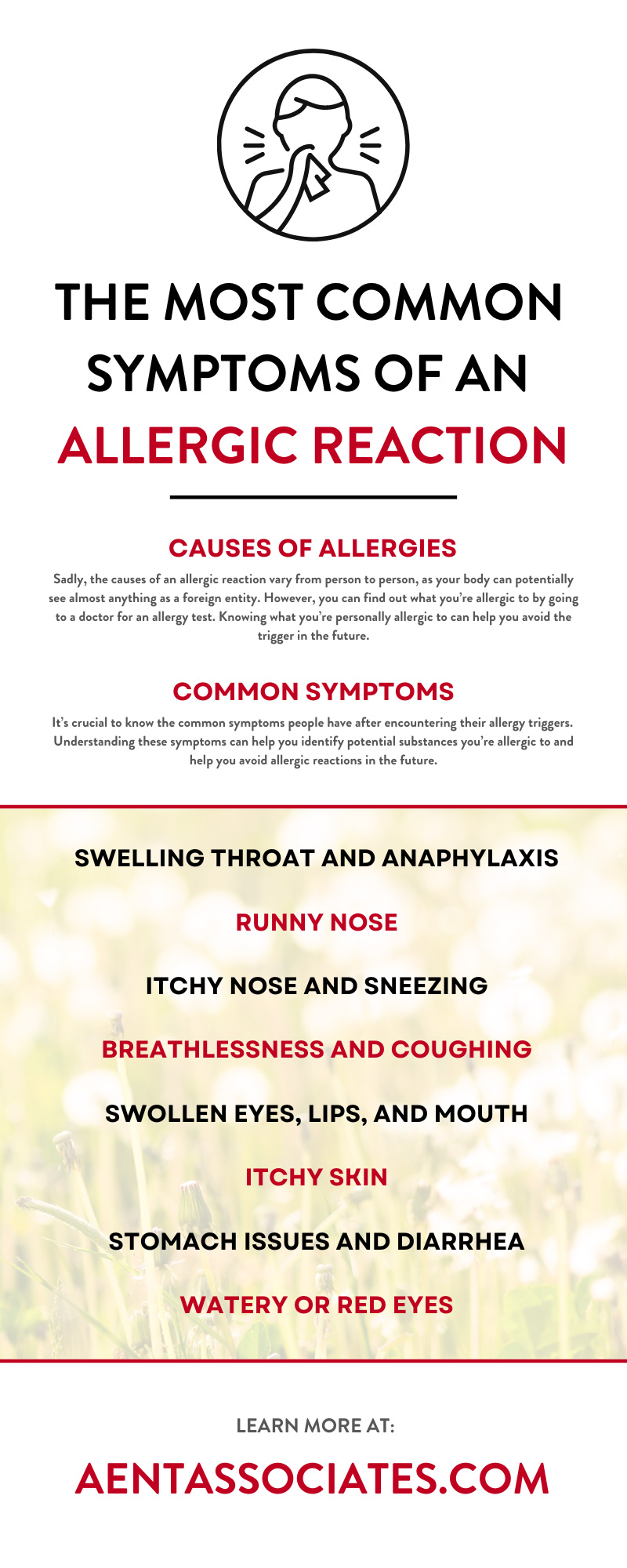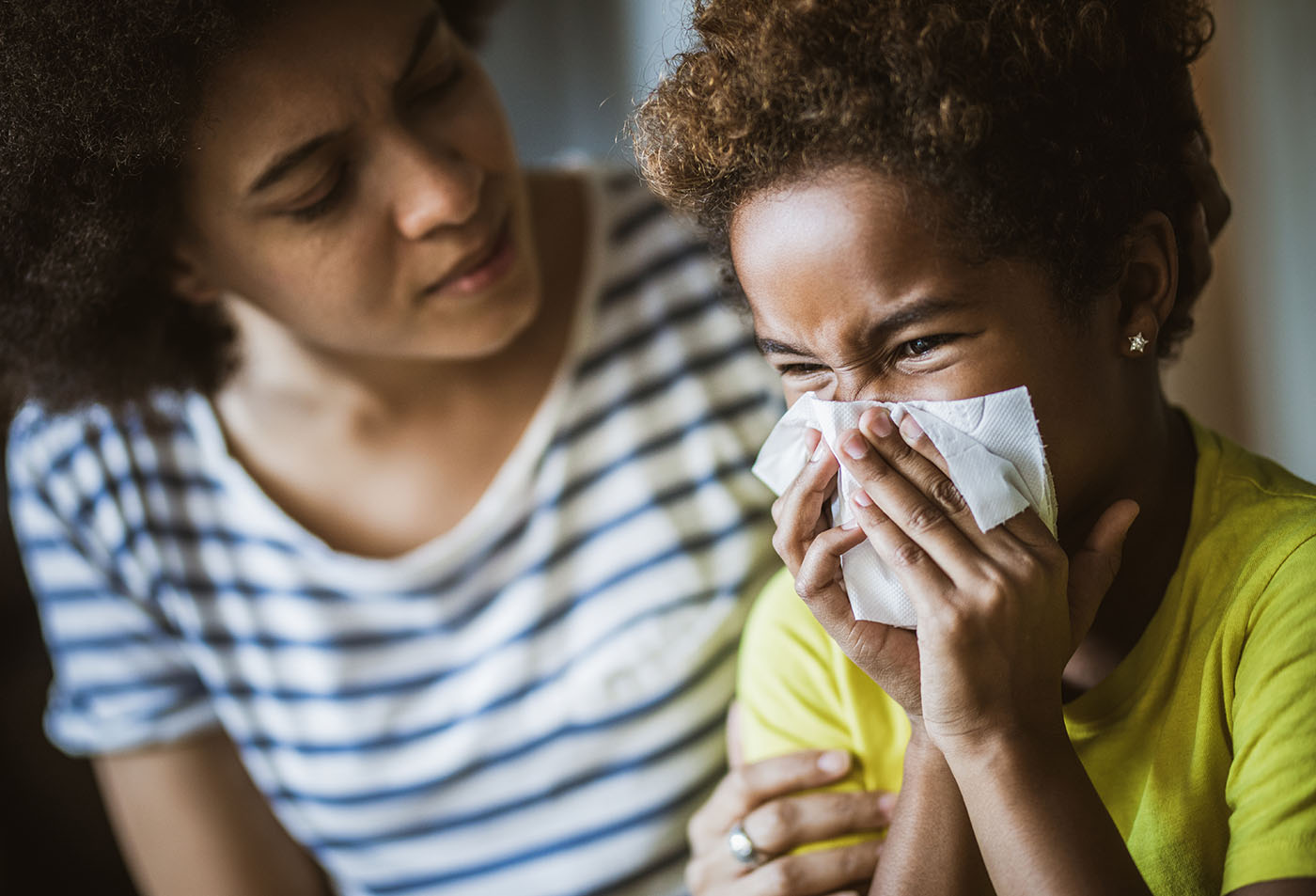
Allergies are a serious medical condition that many people suffer from every year. Your body senses something foreign in you and wants to drive it out, reacting against the object. This reaction can be mild or extreme, as the severity of the reaction changes depending on the trigger and the person. Learn all the common symptoms that come with allergies so that you know what’s happening and how to respond.
Causes of Allergies
Sadly, the causes of an allergic reaction vary from person to person, as your body can potentially see almost anything as a foreign entity. However, you can find out what you’re allergic to by going to a doctor for an allergy test. Knowing what you’re personally allergic to can help you avoid the trigger in the future. If you live in Houston, you can find allergy clinics that perform testing and help you learn to navigate life with your allergies in mind.
Common Symptoms
It’s crucial to know the common symptoms people have after encountering their allergy triggers. Understanding these symptoms can help you identify potential substances you’re allergic to and help you avoid allergic reactions in the future. Some of the symptoms are dangerous, so you need to learn how to deal with them in the case of a severe allergic reaction.
Feeling Unwell
Feeling unwell is a common symptom that comes with any contact with an allergy trigger. This is a mild symptom that won’t manifest in a physical manner beyond a sense of unease in your body. You might start to feel sick, as if you’re coming down with a fever or cold. Try to step away from the area or suspected substance to help alleviate the symptom.
Runny Nose
Airborne allergy triggers are common, especially when it comes to seasonal allergies. If you come in contact with one of these common allergens, your body may start to produce extra mucus to prevent it from entering you through your nose. Yet again, removing yourself from the area will help your body calm down.
Itchy Nose and Sneezing
Your body wants to expel the foreign substance that is causing the reaction, which is why you may start sneezing. This symptom will likely start as an itchy nose as your body starts trying to make you sneeze. Eventually, your body will make the feeling overwhelming until you sneeze, which may remove the allergen. Yet again, leaving the area and blowing your nose is your best bet.
Breathlessness and Coughing
If the allergic reaction is a bit more serious, your body may start to react in more intense ways. You may start coughing to prevent the allergen from entering your body. Additionally, your body may try to shorten your breaths so that less air flows through you, giving the allergen less access to your lungs.
Swollen Eyes, Lips, and Mouth
If you come into contact with an allergen your body has a severe reaction to, you may experience swelling in and around your eyes, lips, and mouth. Your body sends liquid to the most common places of entry for the allergy trigger. This change can cause mild to massive swelling in your face and lead to a lot of discomfort. Additionally, this symptom is a precursor to anaphylaxis. Swelling is a serious event and needs medical attention.
Itchy Skin
Sometimes the allergic trigger stems from a substance you touch instead of something in the air. As the antibodies swarm the area to fight off the foreign objects, you’ll likely experience itchy skin in the spot where you came in contact with the allergen. Start by washing the area with soap and water to remove the substance if possible.
Visual Skin Issues
The presence of an allergen can cause the body to send chemicals to the area, which can cause several skin conditions to appear. These conditions range from itchy rashes to dry skin that flakes off. You can also have some more irritating reactions, such as hives or eczema.
Stomach Issues and Diarrhea
While you should do everything possible to avoid eating anything you may have an allergy to, it does happen. In the milder cases, your body will try to get the allergen out of your body as quickly as possible. You may experience diarrhea as your body tries to quickly purge it from your system using the tools available to it. You may also have an upset stomach as your body tries to deal with the allergen that’s still inside your body.
Tingling Mouth
One of the milder symptoms that follows ingesting an allergen is a tingling mouth. Your mouth will sense the presence of something it doesn’t like and will tingle as it starts to respond to the allergen. If you notice this feeling, you should stop ingesting whatever the source of the allergen is as quickly as possible.
Watery or Red Eyes
A common defense mechanism of your body is to flood your eyes in the presence of an allergen as it tries to protect your eyes from the substance. Additionally, eye irritation leads to red eyes. Yet again, try to remove yourself from the presence of the allergic trigger. You may also want to wash your hands before wiping your eyes in case an allergen is present on your fingers.
Face Pain or Tenderness
Sometimes your face will start to swell but not in an obvious way. This reaction can lead to an uncomfortable feeling rather than visible swelling of the face. It’s common to feel a tenderness that may worsen, turning into pain throughout your face as your skin becomes more sensitive.
Swelling Throat and Anaphylaxis
The most dangerous symptom that can come with an allergic reaction is a swelling throat. This symptom is extremely dangerous and potentially lethal. Your body may cut off your airway in an attempt to block out the allergen. Anaphylaxis requires immediate medical attention and the use of an epinephrine autoinjector (EpiPen), which can help stabilize the person with the reaction.
While most people have mild symptoms in response to most of their allergens, you can never be too careful. Anything can cause an allergic reaction, which makes the condition difficult to prevent with any universal measure. Your best bet is to keep an eye on your body for any of the symptoms and remove yourself if you notice a negative reaction. Additionally, bringing an EpiPen with you at all times can help you and potentially save a life. However, you should always contact a medical professional when it comes to anything related to your health needs and medications.



